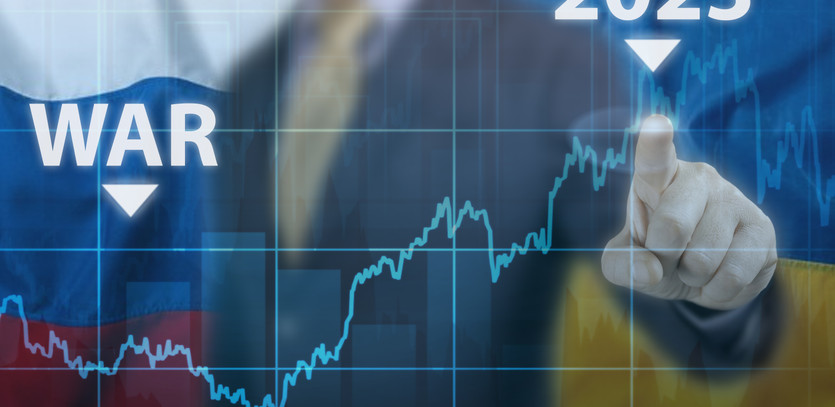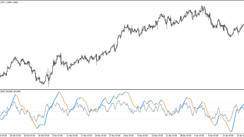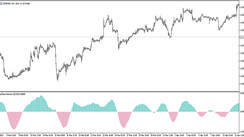The Intricate Web of Forex Trading
A titan in its own right, the foreign exchange, or forex market, is undeniably the largest and most vibrant financial playground globally. Every sunlit hour, participants from different time zones and cultural hemispheres engage in transactions worth trillions. The interwoven and globally distributed structure of this colossal marketplace means that events—major or minor, local or global—can trigger significant shifts in exchange rates and values of different currencies. The effect is almost immediate, given the market's globally intertwined and interconnected nature.
To better navigate this financial labyrinth, let's illuminate some of these global phenomena and discuss how they impact the forex market.
Political Ripples: How Political Shifts Influence Currency Values
Elections: Predictable yet Potent
An election, a political sacrament celebrated in almost every nation, can set the pendulum of a country's currency value swinging. Traders often perceive elections as episodes of potential political instability and uncertainty. This perception fuels increased volatility in the associated currency.
Forex enthusiasts, akin to spectators at a grand chess tournament, watch pre-election moves closely. They're keen to gauge the possible checkmates or blunders, translating the possible shifts in power.
A change in government or leadership usually signals an ideological shift among a country's populace. This ideological swing often ushers in a new course for monetary or fiscal policies. These policies, the twin gears driving an economy, can significantly affect a currency's value.
Economic Growth and Political Sentiments
Political parties or leaders championing fiscal responsibility or fostering economic growth can act as a wind beneath a currency's wings. For instance, an incumbent viewed as pro-economy could be teetering on the edge of defeat. Such a scenario can prompt a currency decline due to the looming clouds of apprehension over future economic growth and stability.
The Turbulence of Unplanned Elections
Unplanned elections, set off by circumstances such as a vote of no-confidence, corruption allegations, or similar situations, can make a currency take a nosedive. Instances of civil unrest, resulting in strikes or public protests, can fan the flames of political instability and further unsettle the currency landscape.
Even when an autocratic regime stands challenged by a new, more democratic, and economically progressive government, forex traders tend to be perturbed by the enveloping uncertainty. Political instability, in the short term, often eclipses the silver lining of a new government, resulting in currency losses.
However, over time, the compass of fundamental valuation principles points back to the true north. Currencies gradually stabilize, reflecting the nation's economic growth prospects in the long run.
Catastrophe Costs: How Natural Disasters Chip Away at Currencies
Natural disasters are the proverbial storms that can decimate a country's physical and financial landscape. Earthquakes, floods, hurricanes, and tornadoes leave behind a trail of destruction, not just in terms of human lives and morale, but also critical infrastructure.
Such cataclysms can send a nation's currency value spiraling downwards. The repercussions of a disaster are multi-fold:
-
Loss of Life and Infrastructure: The physical damage, often monumental, affects factories, distribution centers, and residential areas. The inherent uncertainty associated with natural disasters further dampens the outlook for the affected currency.
-
Economic Impact: Infrastructure serves as the backbone of any economy. Severe damage can choke economic output, causing significant hardships. The cleanup and rebuilding efforts that follow a disaster divert government and private resources from economically productive ventures.
-
Consumer Confidence: Natural disasters also dent consumer confidence, leading to decreased spending due to heightened economic uncertainty. Economic strengths can, under these circumstances, quickly morph into weaknesses.
In essence, natural disasters inevitably lead to a downward tug on a nation's currency.
The Fiscal Face of Conflict: A Comprehensive Examination of War's Impact on Currencies
Unsettling in nature, war is a phenomenon that paints grim pictures on the canvas of a nation's social and economic fabric. Unlike a currency war, wherein nations strategically manipulate their currencies' value to bolster their domestic economies in the global export trade, a physical war can wreak havoc on a country's economic structures. The destructive effects of conflict are extensive, with unsettling parallels to those of natural disasters. Key infrastructures that form the backbone of a country's economic capabilities often bear the brunt, with costs spiraling into billions and destabilizing the balance of the nation's fiscal and social stability.
Impact on Infrastructure and Economy
-
Infrastructure Devastation: War-inflicted damage is not just physical but also economic, stretching a country's resources thin. It often leaves cities in ruins and vital facilities such as factories, power stations, and transportation networks in a dire state, significantly derailing the country's short-term economic viability.
-
Economic Consequences: War-time expenditures are a financial vortex, draining national wealth. Military spending swells, diverting funds from more economically productive areas such as education, healthcare, or infrastructural development. The economic upheaval is further amplified by the destruction of productive assets and the loss of human capital.
The Cost of Recovery
Historically, the silver lining in the cloud of war destruction has been the resurrection of economies through recovery efforts. However, the financing of such initiatives usually involves leveraging cheap capital facilitated by lower interest rates, which subsequently puts a damper on the value of the domestic currency. This direct relationship between lower interest rates and a depreciating currency is a double-edged sword for nations grappling with post-war economic recovery.
Uncertainty and Volatility
One of the significant aftermaths of war is the enveloping cloud of uncertainty that shrouds the nation's future economic prospects and overall health. This uncertainty fuels an environment of heightened volatility for the currency of nations actively engaged in conflict, resulting in unstable exchange rates and unpredictable financial market behavior.
The Controversial Silver Lining
Despite the grim economic scenario, some economists argue that war can potentially serve as a catalyst to jump-start an economy stuck in stagnation. This viewpoint is primarily grounded in the historical evidence of economies gaining momentum during war times:
-
Manufacturing Revival: Wartime necessities can lead to a massive scaling up of a nation's manufacturing base, which can significantly boost the economy. During periods of war, manufacturing resources are often redirected towards wartime production, creating jobs and improving industrial output.
-
Technological Advancements: Wars have historically been the bedrock for significant technological advancements, which in turn have contributed to economic growth. For instance, the technology used in everyday products like GPS, microwaves, and the internet can be traced back to innovations made during wartime.
-
Post-war Economic Boom: The need for post-war reconstruction can spur economic activity, leading to a boom period. The rebuilding of infrastructure and industries can stimulate growth, enhance productivity, and create jobs.
However, it's vital to note that these economic advantages come with a profound human cost. The widespread consensus is that the cost in human lives far outweighs any economic benefits derived from war. As such, even though war may lead to some short-term economic gain, it is generally agreed that the human cost and long-term economic destabilization make it a prohibitively expensive method of economic stimulation.
In conclusion, the direct and indirect impacts of war on a nation's economy and its currency are multifaceted and significant. By understanding these influences, forex traders can anticipate potential shifts and make informed decisions, navigating the tumultuous seas of currency trading with more certainty.
The Bottom Line: Making Sense of Global Events' Impact on Forex
The intricate ballet of political maneuvers, the uncontrollable wrath of natural disasters, and the tragic theater of war are events that significantly shape currency markets. A currency's strength largely leans on the economic vitality of a nation. Any unforeseen disruption to future economic projections usually spells trouble for the currency.
Although predicting the unpredictable in the forex market is a Herculean task, savvy traders incorporate these global events into their comprehensive trading strategies. Understanding these influences allows traders to anticipate shifts and make more informed decisions.





